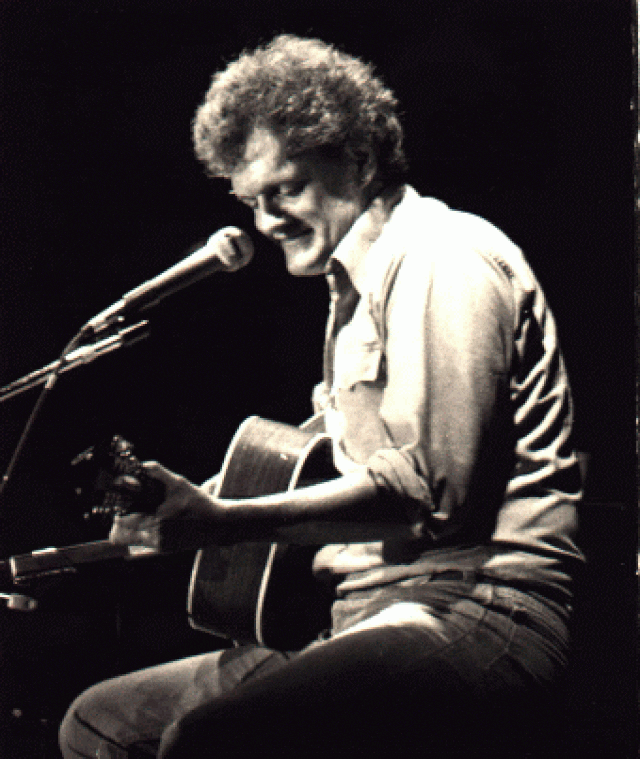By Mashiat Azmi
Long Island’s musical roots run deep, and this summer the Long Island Music and Entertainment Hall of Fame will strike a new chord by hosting its inaugural Music Documentary Film Festival at its location, at 97 Main St. in Stony Brook, from Aug. 8 to 10.
The festival will feature “Cat’s in the Cradle: The Song That Changed Our Lives,” a 2025 documentary about the musical masterpiece by Long Islander Harry Chapin.
“The highly anticipated LIMEHOF Music Documentary Film Festival puts Long Island at the center of the global music documentary scene, featuring bold, unforgettable films that capture everything from rock legends and rising stars to hometown heroes and hidden histories,” said Tom Needham, the film festival’s executive director.
The festival will feature 24 long- and short-format documentaries, including the documentary on “Cat’s in the Cradle,” which Chapin co-wrote with his wife, Sandra Chapin. The song soared to number one on the U.S. Billboard Hot 100 chart in December 1974. It started as one of Sandra’s poems. Later, Harry added the music to it. Chapin received his only Grammy Award for this song.
“Cat’s in the Cradle” is iconic because it carries a profound message about families. At its core, it’s about a father who struggles to find time to be with his son. As the father grows older, he finally has the time to be with his son, but by then his child is grown and has moved on. The father feels a deep sense of regret. Many of Chapin’s fans have said over the 50 years since the song’s release that it helped solidify their familial relationships, particularly with their children.
“’Cats in the Cradle’ reveals a cross-cultural message about family connections and its cultural longevity,” said Lee C. Carter, a music professor at Hofstra University. Chapin is said to have influenced singer/songwriters such as James Taylor, Carole King and Don McLean during the 1970s with his minimalistic but narrative musical techniques.
“The music was simple,” Carter said. “It’s not a large orchestra. It’s usually just a guitar. It’s all about the words, the melody. It’s easy for other talented guitarists to pick it up, repeat it and personalize it. The story, I think, is what grabs listeners.”
The documentary on “Cat’s in the Cradle” will be released on streaming platforms such as Amazon Prime and AppleTV, as well as in DVD format, in September. The film aims to promote Chapin’s mission to inspire a better world while demonstrating how the song affects people globally by featuring both live footage and musical tributes by Billy Joel, Pat Benatar, Darryl McDaniels from the rap group Run DMC, Mandy Patinkin and Judy Collins. The film reveals previously unknown facts about Chapin’s life and professional career, especially his work with humanitarian causes.
An earlier documentary, “Harry Chapin: When In Doubt, Do Something,” produced by Jason Chapin, son of Sandra and stepson of Harry, was released in 2020 during the coronavirus pandemic. As a result, despite positive reviews, the film was not widely seen. This newest documentary promises to be different.
“Some people think it’s a sad song. I think it’s a happy one,” said Jason Chapin, referring to “Cat’s in the Cradle.” “It’s helped many people improve their relationships with different relatives and any of those relationships in a new way.”
Chapin’s family members, including his daughter, Jenn Chapin, and brothers, Tom and Steve, continue to perform his songs.
Chapin reached out to Congress in 1978 to help establish the Presidential Commission on World Hunger, assembled by President Jimmy Carter. He then went on to found the Long Island Cares food bank in 1980, after starting World Hunger Years in 1975 with Bill Ayers, a disc jockey on WPLJ radio in New York. Long Island Cares now distributes 16 million pounds of food yearly to fight hunger. Though Chapin died in a car crash in 1981, his work with world hunger served as an inspiration for the Live Aid and USA for Africa music movements in the mid-80s.
It’s estimated Chapin gave more than 220 performances in 1980, 110 of which were charity events aimed at bringing attention to social injustice, hunger, poverty and other significant causes. The musical composition “Sounds Like America,” by Chapin, examined American food policy and the problem of hunger within the country.
“It resonated with me because I believed, and still do, in the message of the song,” said Paule Pachter, CEO of Long Island Cares.
“It’s such an honor for a musician when legends like Johnny Cash perform their songs after their death,” said Jason Chapin. “I think my father would be very, very honored and excited that his music is still listened to and appreciated by so many people.”






